 Real property partitions help co-owners and co-tenants divide real estate that they purchased together. Partition actions can be agreed upon by the parties, but if there is no agreement, a court will oversee the partition. Under California law, a court will first determine each party’s interest in the property and then determine the way the property will be partitioned. (Code Civ. Proc., § 872.720(a).) California Civil Code of Procedure section § 872.720(a) provides:
Real property partitions help co-owners and co-tenants divide real estate that they purchased together. Partition actions can be agreed upon by the parties, but if there is no agreement, a court will oversee the partition. Under California law, a court will first determine each party’s interest in the property and then determine the way the property will be partitioned. (Code Civ. Proc., § 872.720(a).) California Civil Code of Procedure section § 872.720(a) provides:
If the court finds that the plaintiff is entitled to partition, it shall make an interlocutory judgment that determines the interests of the parties in the property and orders the partition of the property and, unless it is to be later determined, the manner of partition. (Code Civ. Proc., § 872.720.)
Property partitions can be completed by dividing the physical property, by selling the property and dividing the amount of the sale among the interested parties, or by appraisal with all parties’ consent. In partitioning property through a sale without an agreement, courts may select a referee to assist in the sale. While courts presume that physical division of the properties is the fair option, a party wanting to sell the property can prove that it would be fairer to sell it than it would be to divide it. (Butte Creek Island Ranch v. Crim (1982) 136 Cal.App.3d 360, 366.)
 California Partition Law Blog
California Partition Law Blog


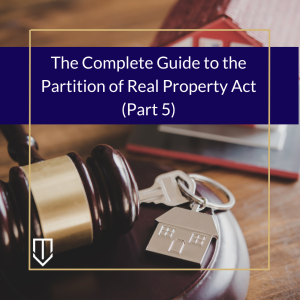 Just as there are special provisions for defaulting parties with
Just as there are special provisions for defaulting parties with 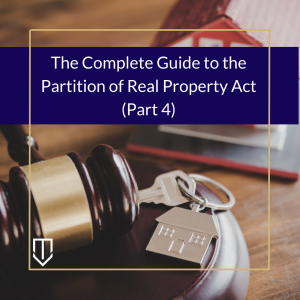 This is a continuation of our ongoing series on the Complete Guide to the Partition of Real Property Act. For complete comprehension, we would suggest
This is a continuation of our ongoing series on the Complete Guide to the Partition of Real Property Act. For complete comprehension, we would suggest 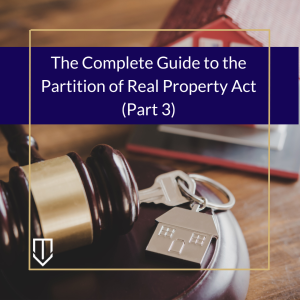 How does the court appraise the property (CCP § 874.316)?
How does the court appraise the property (CCP § 874.316)?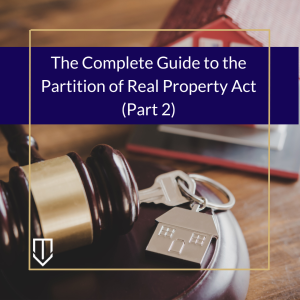
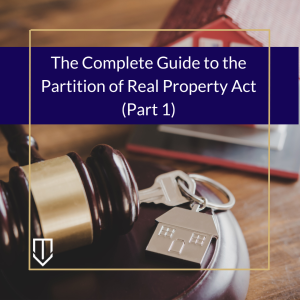 It’s rare that a new law comes along that turns an entire established legal practice on its head. Yet that’s precisely what California’s Partition of Real Property Act intends to do. Revised in 1976,
It’s rare that a new law comes along that turns an entire established legal practice on its head. Yet that’s precisely what California’s Partition of Real Property Act intends to do. Revised in 1976,